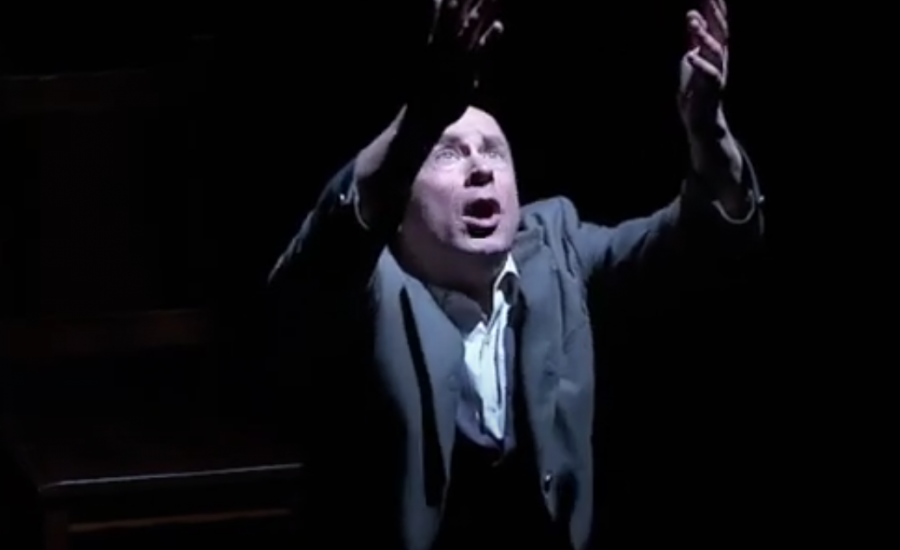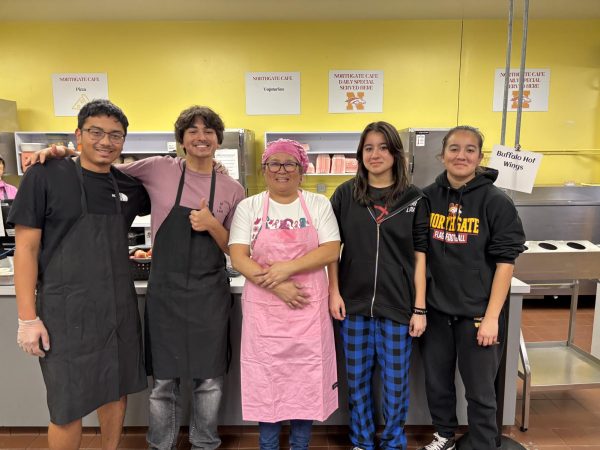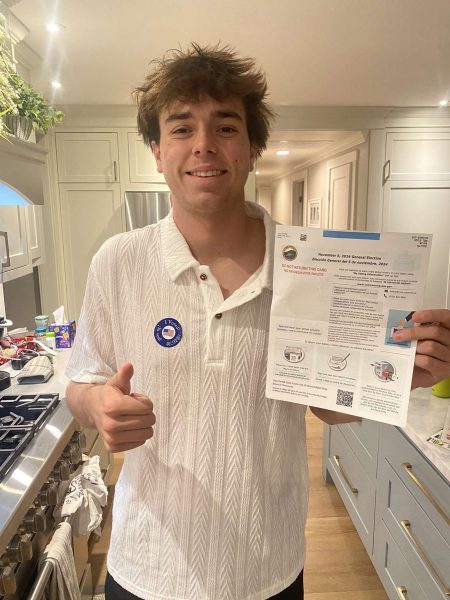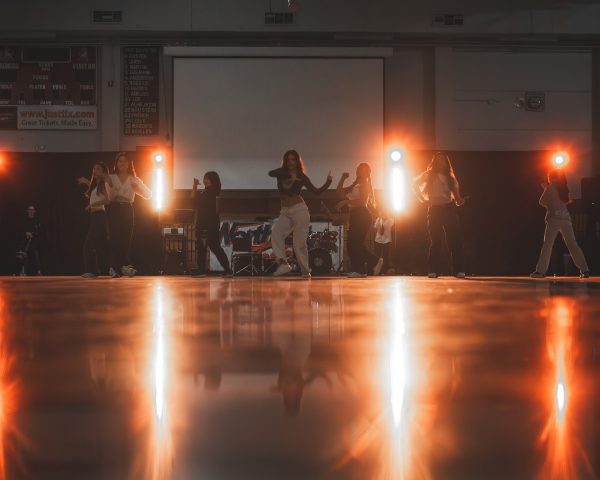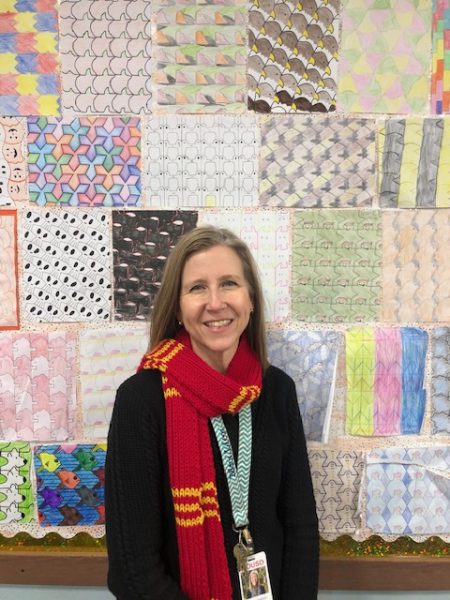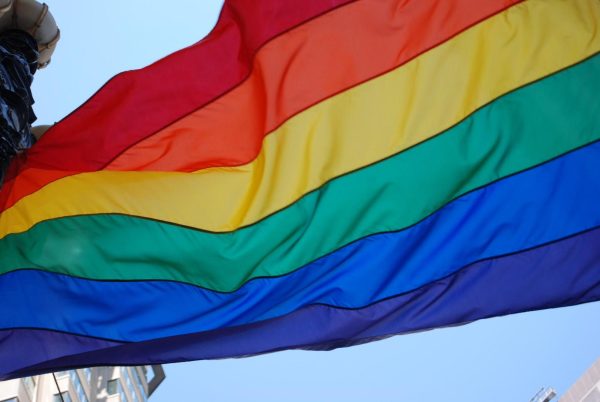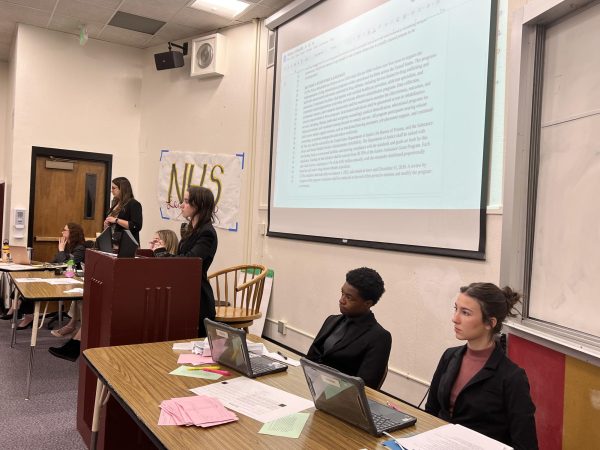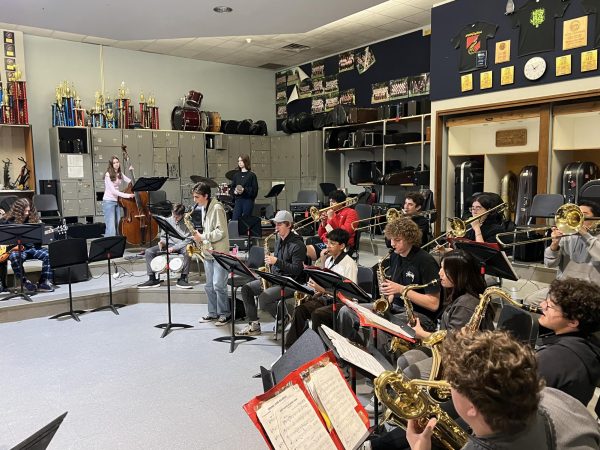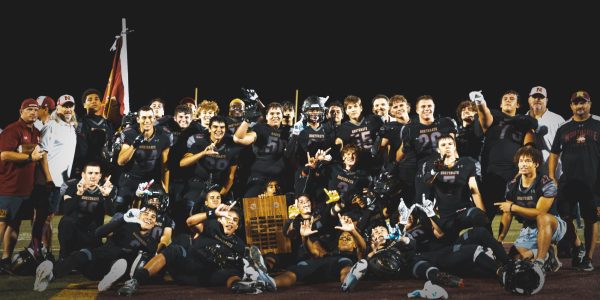The Mitzvah, a one-man show depicting horrors and family experiences of the Holocaust, impacts students
“There is no ‘other.’ The ‘other’ is all of us.” – Actor Roger Grunwald
Screen Grab/The Mitzvah, Northgate Youtube Channel
Roger Grunwald performs his play, The Mitzvah, virtually for Northgate students Feb. 3 and then talks with them about the Holocaust and experiences of Jewish people, including those in his family, in Europe.
Just over 75 years ago, the second world war came to a close, yet the issues people fought over all those years ago still are argued about today. Even more disturbing, according to CBS News, 60 percent of people under 40 are ignorant about basic facts regarding the Holocaust.
These shocking statistics are horrifying, not only because it means many of our young people don’t know basic history, but because it means that there is a higher chance that it could happen again.
But just why is it so important to remember the past? “Those who cannot remember the past are condemned to repeat it,” explained Spanish philosopher George Sanaytra perfectly.
Roger Grunwald is on a mission to make sure that we don’t forget the important events of the Holocaust through his play, The Mitzvah. On Feb. 3, he was kind enough to share his play with students from Northgate in a virtual presentation which German teacher Nancy Grabow organized.
The Mitzvah takes its title name from the Hebrew word for doing good deeds, demonstrating empathy and kindness. Throughout the play, Grunwald artistically and theatrically educates the audience on the horrible things that happened during the war. Perhaps those exact sequences of events didn’t happen, he shared, but there were things far worse – too horrible to even reenact.
The play, which can be located on Northgate’s Youtube Channel, is nothing short of magnificent. In his one-man performance, Grunwald switches between a number of characters. He recites detailed monologues that plunge the audience into a sea of emotions.
In one monologue, a Jewish man watches his wife and child get murdered only because a group of Nazi men are bored. The perspective switches to a soldier, who is actually half Jewish himself. He shoots the Nazi man dead in the face, frustrated with their sick game.
Those who saw the play agree that it is amazing. It has touched the hearts of nearly 500 Northgate students so far, including senior Payton Barnes.
“I think it’s important to learn about the Holocaust because many of the survivors are no longer around, and with their stories moving on with them it means that younger people are forgetting the horrors and dangers of that event,” Barnes said. “If we don’t learn about what happened, it makes it exponentially more likely that that kind of event could happen again, which is absolutely unacceptable.”
Senior Lilian Andrada commented on the excellent manufacturing of the play. “It struck me on how well crafted it was. It was three distinct characters. The flashing pictures and voice over was a nice setup. The costume was also very well designed. He flipped up his collar or buttoned it down [to differentiate characters]. At the end, it was striking how he symbolized one character killing another by taking off his coat. It was just very well made.”
Many agree that the Holocaust is an event that we don’t want to repeat. In 1933, Adolf Hitler was elected as chancellor of Germany, essentially giving him full control over the country. His Nazi party, a group of antisemitic Germans, invaded Poland in 1939. Soon after, many European nations declared war on Germany. Yet, that didn’t stop Hitler. He created concentration camps that mass murdered millions of Jews over the course of the war. The US didn’t join the war until 1941, after Japan bombed Pearl Harbor. The war ended in 1945, but 6 million Jewish people had already perished.
After the performance, Grunwald gave a talk explaining more details about the Holocaust, about his family and himself.
Grunwald was raised in San Francisco and graduated from UC Berkeley. Among many accomplishments, including five decades of performing, Grunwald was a community organizer who created an organization to empower kids in underserved communities. His parents were German-Jews who came to the United States after the war.
He recalled how his father fled Germany in 1930 and found safety in the Philippines. His father was able to send for Grunwald’s grandmother in 1938. Just a month later, Kristallnacht, an anti-Jew rampage in Germany, took place. Jewish homes and businesses were burned, shattered, and destroyed. “The Night of Broken Glass” threw about 30,000 Jews in concentration camps and destroyed 7,000 Jewish businesses. It was just one of many horrors of the war.
Grunwald’s mother was not so lucky. After a failed attempt to go to the US, her family fled Frankfurt and retreated to Holland, where many other Jews had found refuge. In 1940, the Nazi’s took over. Her sister, Ilsa, died in 1943 at the age of 23 at Sobibor, an extermination camp in Poland. Their father died the same way. Luckily, Grunwald’s other aunt, Ani, survived the Bergen-Belsen camp.
Grunwald showed a picture of faded numbers on a woman’s arm. Looking closely, one could make out the numbers 78465. His mother and other Jewish people at Auschwitz were branded and revoked of their names – revoked of their humanity, he shared. She recovered in a Red Cross camp in Sweden. Soon after, she began to speak about her experiences so that it wasn’t forgotten. Grunwald has felt the same obligation.
He explained how people remember so many different faces. Anne Frank. George Floyd. Yet, the faces we most often remember are because they faced a horrible end.
In Europe, Judaism was greatly frowned upon. People were discriminated against for hundreds of years. This caused many to leave. Yet, many families had been there for generations. From 1800-1900, 70,000 Jewish people converted. From 1970-1929, there were 84,000 mixed-marriages. Jewish people began to adapt, only to be barred from basic human rights once again.
In 1935, Germany created the Nuremberg Laws, which created legal groundwork for the persecution of Jews. The most shocking part about it was that the writers of these laws modeled it after United States laws. The United States had its infamous eugenics movement, in which the goal was to eliminate undesirable elements in society. Thirty-three states even legalized the sterilization of “undesirables,” which was led by California.
Grunwald shared that the most twisted part about it all was that if one looked the part of “perfect,” they were exempt from descrimination. During the Nazi control in Germany, many Jews who “looked German enough” fought as Nazis and received a Declaration of German Blood, signed by Hitler.
In 1939, a poster of a soldier was distributed throughout the country, encouraging young men to sign up. Yet, he was half Jewish.
What is Judaism? At its core, explains Grunwald, it is a belief. What is the difference between “black” or “white”? What is the difference between a German and a Jew? Science shows that humans are so intermixed that, quoting Grunwald, “…there is and never was pure.”
Students who observed the performance were awed by its impact.
“I liked how he switched the characters,” freshman Lauren Bausley stated. “I wasn’t expecting it the first time and I was taken aback! Throughout the performance, I felt uncomfortable with the historic aspect. It made me uncomfortable thinking about how willing people were to live with the genocide. It was disheartening. At the same time, it made me think more critically about how I can act in the future. I can stand my ground and use my own values to stand up for others.”
Junior Ben Smith also praised the performance. “Probably one of my favorite things was that Grunwald was playing three roles, which is something that you don’t see a lot of. It was a really interesting dynamic that he brought,” he said.
Sabrina Woo, also a junior, noted how Grunwald “used vocal variation in reference to which character he was portraying. I noticed that for certain characters, the accent was way thicker than others. So, I was actually drawn in because I had to listen harder to actually decipher what he was saying. I’m not sure if this was his intent, but it really does keep you engaged.”
Another student who was greatly influenced by Grunwald’s presentation is junior Marina Bulanova. “It is so important to educate ourselves about history, especially when it’s something horrendous, like the Holocaust. It was so horrible and it impacted so many lives,” she said.
Additionally, she addresses the frightening truth: there are people who don’t know about the Holocaust, or don’t care about it. “It is horrible that people are denying it at this point. I think that it’s absolutely horrible. But, it goes to show why it’s so important to learn history and learn about horrible events that happen,” Bulanova said.
John Litten, the Northgate drama teacher, was also amazed by Grunwald’s performance. “For me, it’s great to see an actor perform. When I see good theater, I am like ‘yes!’ This is why I’m in this art form-because it gives us the opportunity to tell stories. What I like about theater is that it isn’t safe. It makes me feel alive.”
Furthermore, Litten explained how he feels about the importance about learning about things such as the Holocaust.
“I am very mindful about how I need to be cautious about what is happening,” he said. “We do not want to repeat history. It is very important that the next generation remember what happens because we do not want to repeat a genocide. It gives me strength to know that our voices do matter.”
German teacher Nancy Grabow, known to students as Frau Nancy, coordinated with Grunwald to allow students to have the opportunity to watch The Mitzvah. She organized this for her German language students, and invited all students. She explained how Grunwald was doing his play on zoom for free, an extremely generous offer, and it was something she couldn’t possibly pass up.
“I like you to be entertained and I think it’s important to educate you,” she said, referring to her language and all students. “I think that it’s important for young people to know about that part of history even though it’s uncomfortable.”
Like others, Grabow was astounded by the impact that The Mitzvah had on her.
“It was astonishing, the things that he said. It was really very heart-rending and important for us as German students, but also as a community to realize that that is what’s going on,” she said. “Everyone glibly says, ‘We have to learn from history.’ But to hear what happened to someone personally and you’re looking in his eyes and you’re watching him… I thought it was extraordinary.”
This wonderful play can still be found on Northgate’s Youtube Channel. There is so much that can be learned in that short period of time. The Holocaust is something humans don’t want to repeat. But, rather than continuing to look in the past, one should look to the future. One should consider how they can be better. They should consider how others feel.
After Grunwald’s impactful speech, he left the audience with one final idea: “There is no ‘other.’ The ‘other’ is all of us.”
To see the performance, go to Northgate’s Youtube Channel.

